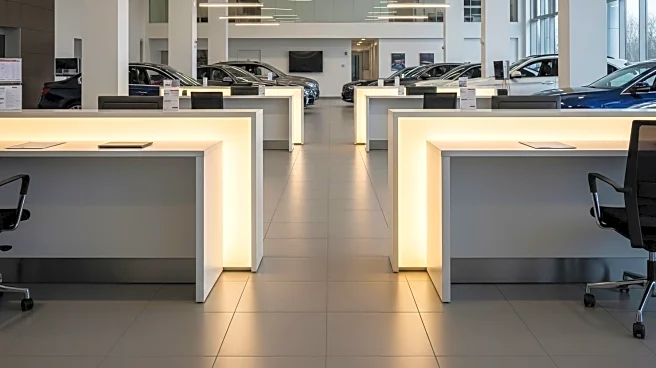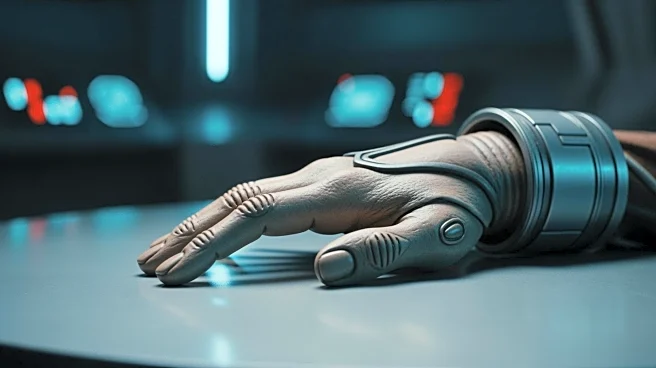What's Happening?
The used car market in the U.S. is experiencing significant changes due to a decrease in leasing and an increase in outright sales. Historically, about 30% of new cars were leased annually, but this figure dropped to 17% in 2022. Automakers are now prioritizing direct sales over leasing, as selling cars outright yields higher profits. This shift is partly due to heightened consumer competition for a limited number of new vehicles, which are being sold at premium prices. The pandemic-induced supply chain disruptions have also contributed to the scarcity of new cars, affecting the availability of used vehicles. As a result, used car prices have surged, with the average price for a three-year-old vehicle rising from $22,000 pre-pandemic to over $31,000 in 2025.
Why It's Important?
The shift from leasing to selling new cars has significant implications for the U.S. automotive industry and consumers. Automakers benefit from higher profit margins by selling cars outright, but this strategy reduces the availability of used cars, driving up prices in the secondary market. Consumers face increased costs when purchasing used vehicles, impacting affordability and accessibility. The trend also reflects broader economic challenges, including supply chain disruptions and tariff uncertainties, which continue to affect vehicle production and pricing. As new car sales rebound, the ripple effects of past shortages persist, influencing market dynamics and consumer behavior.
What's Next?
The contraction in lease maturities is expected to continue, further impacting the used car market. Automakers may need to adjust their strategies to address consumer demand for affordable vehicles, potentially reintroducing entry-level models. Additionally, ongoing trade negotiations and tariff discussions could influence future pricing and availability of new and used cars. Consumers may need to adapt to the new market reality, exploring alternative transportation options or adjusting their purchasing strategies to cope with higher costs.
Beyond the Headlines
The shift in leasing practices highlights broader economic and societal trends, including the increasing importance of vehicle ownership in a car-dependent nation. The rising costs of new and used cars may exacerbate economic inequalities, as lower-income individuals struggle to afford transportation. The automotive industry faces ethical considerations in balancing profit motives with consumer needs, particularly in a market where affordability is a growing concern.










